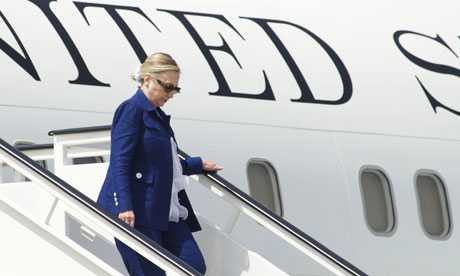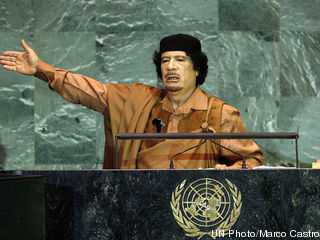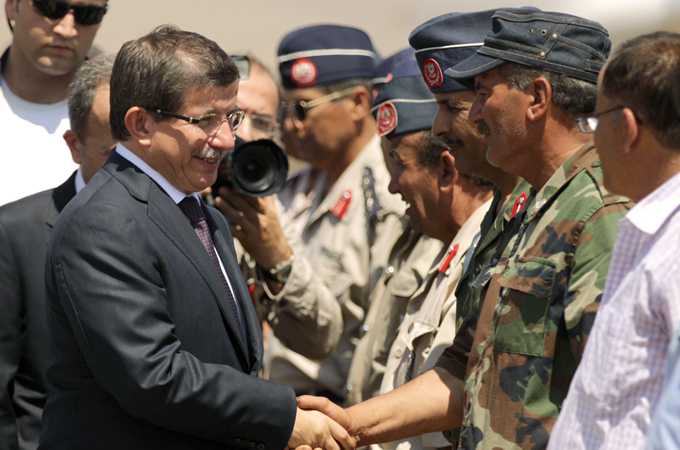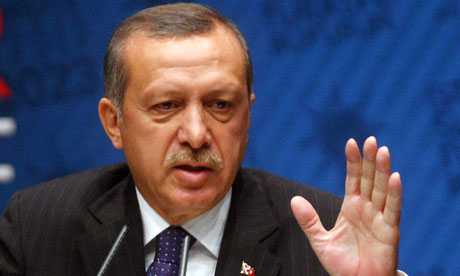Clinton’s round-the-world tour is likely only to highlight how impotent the United States has become

Hillary Clinton’s 11-day round-the-world tour is remarkable even by the high-flying standards of US secretaries of state. It’s certain to make headlines around the globe. But paradoxically, this diplomatic tour de force may unintentionally highlight the apparently inexorable decline of American power and influence. It will be notable as much for what is not said as what is.
Clinton’s first stop is in Istanbul on Friday, where she will join European and other foreign ministers in the international contact group co-ordinating the Nato-led intervention in Libya. The official line, promulgated by France, is that pressure on Muammar Gaddafi’s embattled regime in Tripoli is telling, and that the outlines of a negotiated settlement are beginning to emerge.
While that assessment will be publicly upheld in Istanbul, behind the scenes Clinton may hear well-rehearsed complaints that the US is not doing enough, militarily and in other ways, to back up its Nato partners. Despite claims that Gaddafi is close to throwing in the towel, there is as yet no concrete sign that he will stand down – amid widening differences in approach between the US and Britain, France, Italy and Russia. To confuse matters further, Turkey will propose yet another “roadmap” to end the conflict.
Clinton could give the interventionists a boost were she to announce US recognition of the rebel national council in Benghazi as Libya’s government and release more than $30bn in regime funds frozen in US banks. But Washington, worried in part about encouraging Islamist extremists, has so far hedged its bets.
Clinton’s Turkish leg will include bilateral talks on Syria, Iran and the Israel-Palestine conflict. All three issues speak to American impotence, not leadership. In Damascus, Bashar al-Assad continues to ignore ever more shrill American criticism of the nationwide security crackdown. Clinton said this week that the Syrian president had forfeited the legitimacy to rule. But while China and Russia afford him diplomatic cover, and Barack Obama remains opposed to direct intervention, there is little more the US can do other than complain.
Iran’s recent decision to dramatically accelerate its suspect uranium enrichment programme gives the lie to claims that the Tehran regime is retreating under the US-led sanctions campaign. And with the Obama administration’s peace plan torpedoed by Binyamin Netanyahu, the Israeli prime minister, Clinton can have little to say on Palestine. The US is now reduced to the role of disgruntled spectator as a UN vote to recognise Palestinian statehood draws near.
Clinton’s visit to financially stricken Athens on Sunday is unlikely to be of any practical assistance. The US is one of the few countries with a bigger national debt than Greece. Like the Greeks, Americans seem incapable of achieving a consensus on how to address it. And it is arguably US-patented transnational market capitalism that created the whole sorry mess in the first place.
The next stop on Clinton’s grand tour – India – will take her into the sphere of superpower rivalries. The secretary of state will say a lot about strengthening ties through strategic dialogue and commercial collaboration. What will not be said is that the US increasingly views Delhi as a vital counterweight to a steadily more aggressive China.
For this reason Clinton cannot be expected to dwell, for example, on India’s de facto support for the Burmese dictatorship, its unhelpful stance on Kashmir and its machinations in Afghanistan. Counter-terrorism will be high on the agenda following Wednesday’s bombings in Mumbai. In this context, Clinton will do well to avoid David Cameron’s mistake of indulging in gratuitous Pakistan-bashing on Indian soil.
Clinton’s sojourn will be rounded off in south-east and east Asia, where the greatest challenges to American power are rising. A security conference in Bali is certain to touch on a host of territorial disputes between China and its neighbours, with another confrontation involving Vietnam reported only today. Clinton made waves last year when she warned China, in effect, to stop trying to fence off the South China Sea. Her words angered Beijing but did not alter its behaviour, which, if anything, has grown more belligerent. Much the same might be said of the effect of American strictures on North Korea.
Clinton will finish her global circumnavigation in Hong Kong, where she is due to make a speech decrying protectionism. Given America’s own protectionist record, and its ever greater reliance on Chinese capital and Chinese imports, this piece of doorstep impudence is more likely to elicit smiles than snarls in Beijing. When you’re winning, you can afford to laugh.
via Hillary Clinton circumnavigates a sphere of diminishing US influence | Simon Tisdall | Comment is free | guardian.co.uk.




